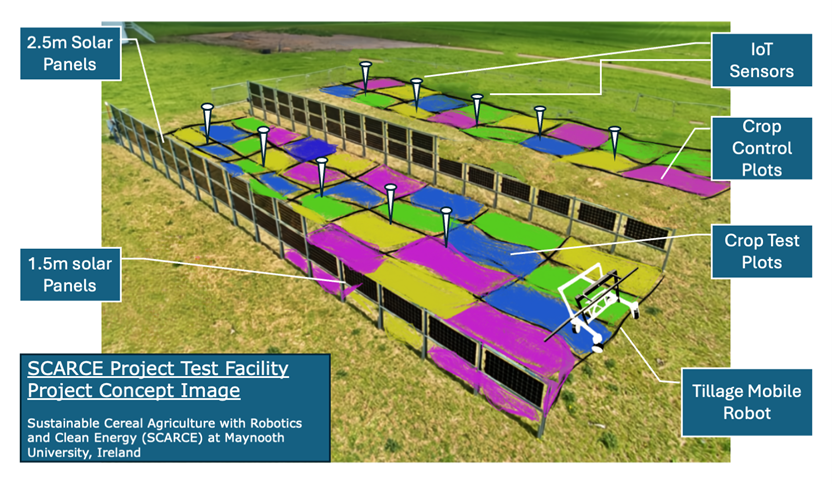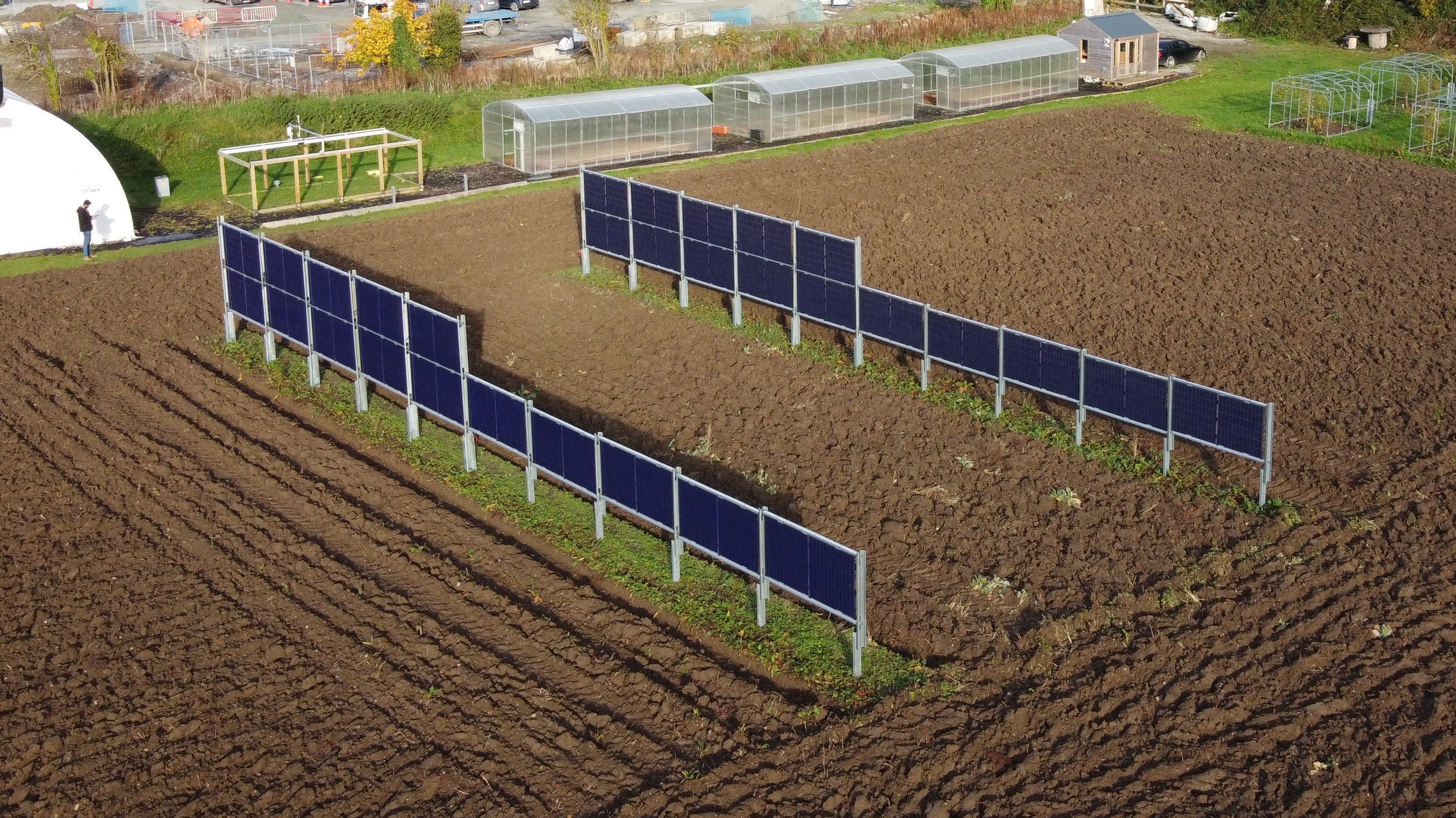Sustainable Cereal Agriculture with Robotics and Clean Energy (SCARCE)
- Funding Source: Irish Distillers and Maynooth University partner on robotics project to accelerate move to regenerative farming within the tillage sector.
- Contact Person: Prof. Gerry Lacey
Irish Distillers and Maynooth University Ireland are partnering on a two-year research project to develop an autonomous regenerative agriculture platform through robotics, to improve the sustainability of cereal crop production. We are on a journey to find an efficient, sustainable and economically viable solution to regenerative agriculture using robotics and solar power with the aim of developing a world first integrated system for the supply of low carbon regenerative grains.
The project will use mobile farming robots and vertical solar panels to monitor and manage cereal cultivation, with the aim of optimising grain yields and resource utilisation while delivering a sustainable and resilient ecosystem that nurtures soil health, biodiversity, and long-term environmental vitality.
As part of this research project, test plots on MU’s Robot Farm were planted this Spring with a variety of crops and monitored regularly throughout the summer with 3D cameras and soil testing before being harvested in Autumn. The robotics team has developed new imaging techniques that use both the shape and colour of the plants leaves to automatically determine plant health.
SCARCE Test Facility:Maynooth University is developing a novel test facility to investigate new models of tillage agriculture that integrate solar energy production with regenerative agriculture methods, enabled by mobile robotic platforms and IoT sensors.

